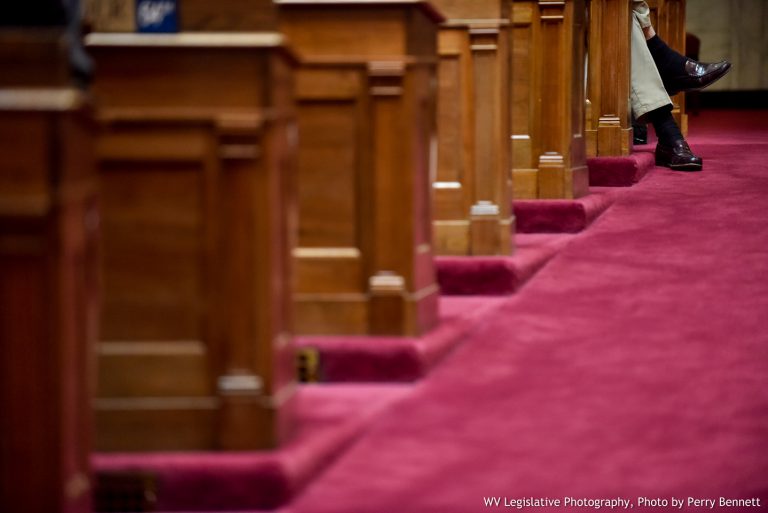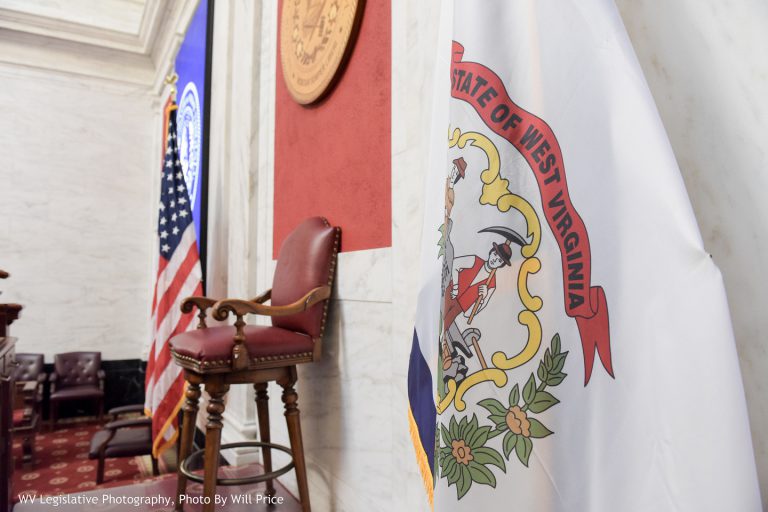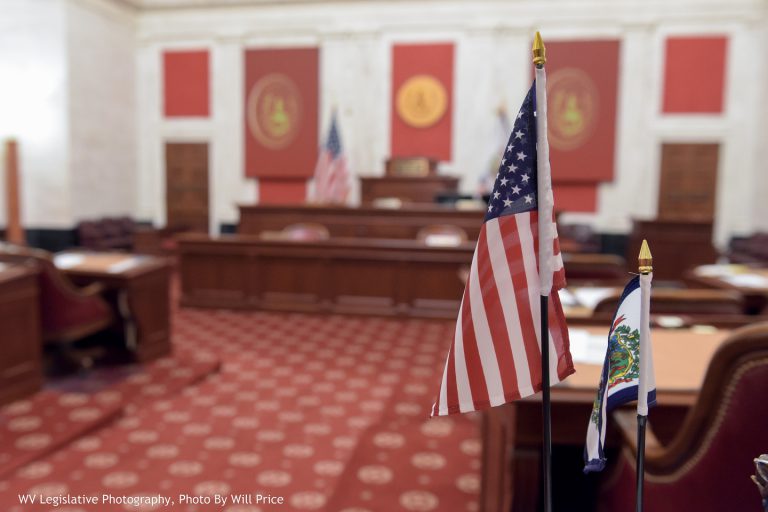As of 4 p.m., Wednesday, February 7, 2007, the 29th day of the 2007 Regular Session, 916 bills have been introduced in the House of Delegates. Of those, 14 have passed the House and will now go to the Senate for its consideration. They include:
House Bill 2028 would increase the amount of the required bond of certain businesses regulated by the Division of Motor Vehicles from $10,000 to $50,000. These businesses include: new motor vehicle dealers, used motor vehicle dealers, house trailer dealers, recreational vehicle dealers, motorcycle dealers and used parts dealers.
House Bill 2571 would clarify the deadline for redeeming delinquent lands. Current law is vague on the exact time of payment for overdue land fees, stipulating only “before sale,” and it has been a source of confusion for sheriffs throughout the state. The change would compel payment by the close of the last business day before the sale date, and it includes a requirement that affected landowners are notified in the local paper or by certified mail.
House Bill 2770 would amend current law relating to court security personnel and would enhance penalties for certain violent acts, such as assault and battery, against court security personnel as well as define the term, “court security personnel.” This bill would add that position to a list of others, such as state fire and division of forestry employees, and would adopt their provisions.
A Sampling of Bills Introduced In the House
House Bill 2783 would exempt full-time undergraduate students who attend a state public institution of higher education from paying state income taxes, and would exempt them from paying those same taxes for the first two years following the successful completion of an undergraduate program. If the graduate owes money to the institution or to a lending entity through the procurement of student loans, he or she would be required to pay a minimum sum of 75 percent of the tax liability that would have otherwise been paid in state income taxes.
House Bill 2785 would allow a law-enforcement officer to temporarily detain a criminal suspect in order to determine his or her identity and the reason for their presence in the detainment location. The detainment cannot extend beyond the immediate vicinity where it was first affected and cannot last for more than six hours.
House Bill 2786 would require the governor to fill vacanies in the positions of State Supreme Court of Appeals Justice and circuit court judge within 90 days. The bill would allow for challenges questioning the qualifications of the appointed person for a period of 20 days following the governor’s nomination.
House Bill 2794 would require a preliminary breath analysis test of all surviving drivers involved in a fatal automobile accident to determine his or her blood alcohol content.
House Bill 2795 would prohibit the transportation of a loaded or cocked crossbow in a motor vehicle.
House Bill 2801 would provide a $50,000 benefit to the families of firefighters and Emergency Medical Services personnel who are killed in the line of duty.
House Bill 2803 would prohibit a person from smoking tobacco products in a motor vehicle when a minor is present. A person in violation of this law would be found guilty of a misdemeanor, and for the first offense would be fined at least $100; for the second offense be fined at least $100 and sentenced to three days in jail; and for the third and subsequent offenses be fined at least $500 and lose his or her driver’s license for a period of up to six months.
House Bill 2834 would require motorcycle operators and passengers under 21 years of age to wear a helmet. Drivers 21 years and older would be permitted to refrain from wearing a helmet only if they have had a valid motorcycle license for at least two years.
House Bill 2840 would permit people, who are legally entitled to posses an animal according to current state law, to transport that animal out of state.
House Bill 2842 would amend current state law pertaining to beverages sold or served to students in public schools. Elementary, Junior High and Middle Schools would be required to serve only “healthy drinks,” and could not serve soft drinks. “Healthy drinks” are defined as water, 100 percent fruit or vegetable juice, and reduced or low-fat milk. High Schools are permitted to sell soft drinks at any time during the day except during the breakfast and lunch periods. In addition, if soft drinks are sold, “health drinks” must be equally accessible and account for 50 percent of the total beverages offered for sale. The bill does not limit the sale or service of food or beverages during fund-raising activities when the items are intended for after-school use.










